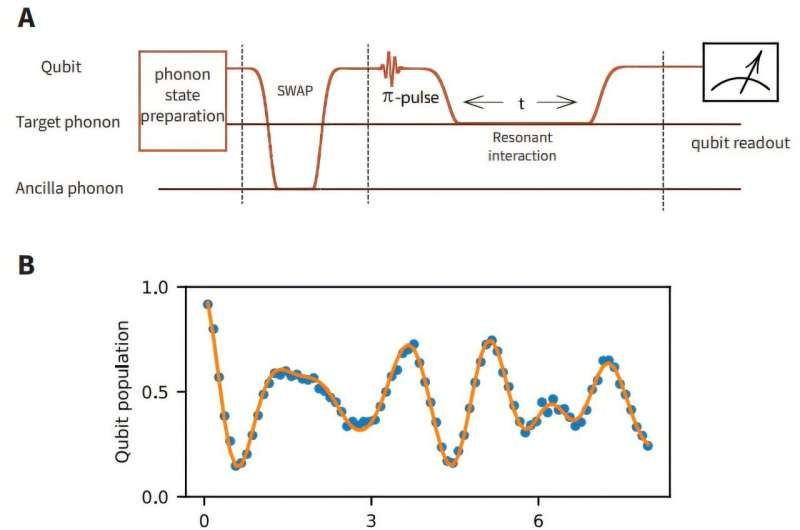"Physicists create the first fully mechanical qubit" Its been a while coming...
How curious to have gone in the reverse direction from Virtual Qubits to Mechanical Qubits. Usually the Analog is created first and then it gets digitized, now what was digitized is now Analog.
Heres the article.
<snip>
A team of physicists at ETH Zürich has built the first-ever working mechanical qubit. In their paper published in the journal Science, the group describes their novel idea for creating such a qubit and how well it has worked during testing.
Researchers believe quantum computers will be able to solve many types of problems that are beyond the ability of classical computers. And while much progress has been made, the goal has still not been fully realized. One of the major sticking points is the problem of virtual qubits, such as those made using electromagnetics, which produce errors that must be corrected. The research team found another way around the problem—using mechanical qubits instead.
Instead of representing data with only ones and zeroes, qubits are able to store data in a superposition of both states. For this new study, the researchers built what they describe as a membrane similar to a drum skin that can hold information as a steady state, a vibrating state or a state that is both at once.
Noting that the real problem with virtual qubits is their short duration (they pop into existence and are gone in a flash), the researchers turned to something that would last much longer—a piezoelectric disk fixed to a sapphire base. They used it as a mechanical resonator. They then attached a qubit made of a superconducting material fixed to its own sapphire base, using a special fabrication technique they developed.

The result was a qubit with coherence times that were based on the type of superconductor used and were on average better than hybrid or virtual qubits used in other systems.
The team plans to continue their work, looking to improve coherence times using different materials. They also are looking to test their qubits with quantum gates to see how well they perform in a computer.
<end snip>
Original URL here.
It looks like this is now where materials engineering will come into play… Sorta like how there are a variety of Diodes and depending on the materials used to build the diodes determines how the Diodes perform their Function of Rectification. Some diodes are low volt threshold diodes and so drop less voltage as the pulse is rectified thru them, Other diodes are SiC and their aptitude is Near instant transmission with little relaxation time.
D-Wave still seems to be the forerunner on Qubit Computing/Quantum Computing. They’ve still got the biggest total qubit computer thats online today.
Evidently now they have a Cloud Access Quantum computing platform available for enterprises to make use of.




